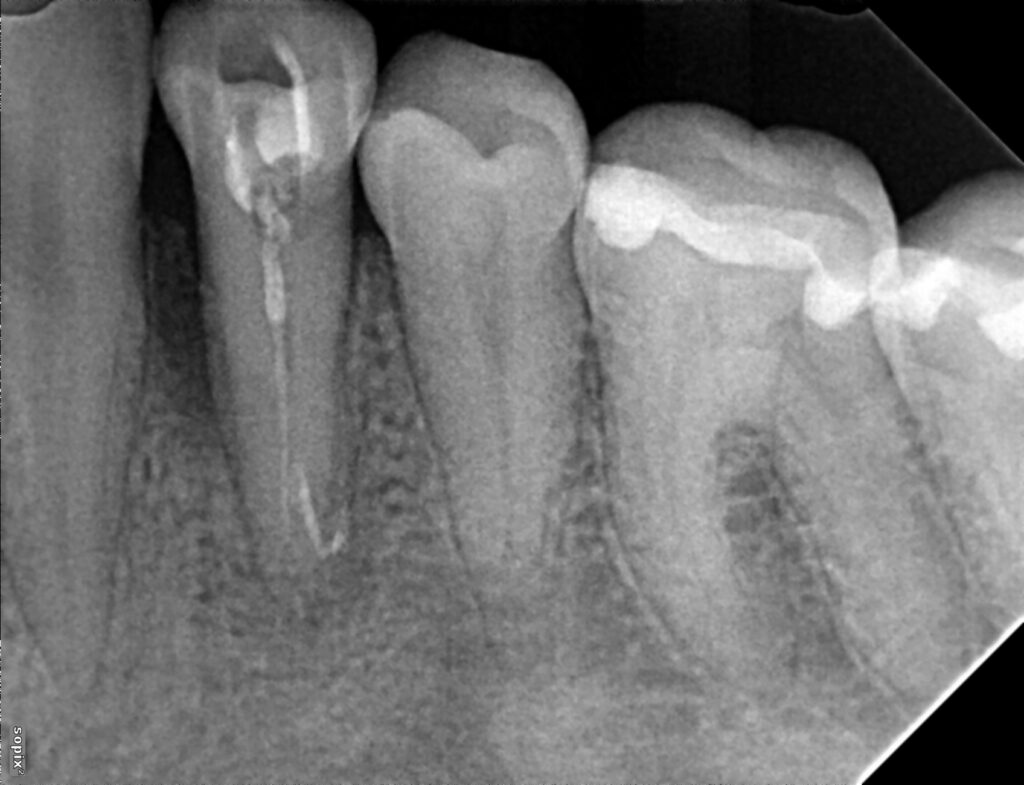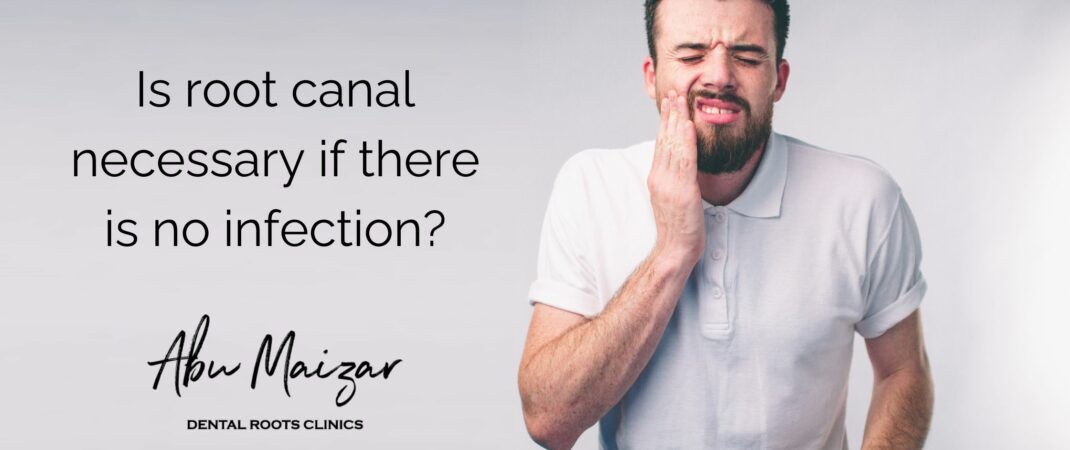abumaizar
administrator | 12 August, 2023
When it comes to dental health, there’s a common misconception that pain is the ultimate indicator of a problem.
However, the nature of our teeth and the complex network of “nerves” that surround them often means that issues can quietly develop without you feeling any discomfort.
One such dilemma that frequently arises is whether to undergo a root canal procedure when no pain is present.
Root canals have long been associated with alleviating severe toothaches, and while pain can indeed be a telling sign of a dental problem, it’s not the only factor to consider.
In this article, we delve into the world of root canals, dispel myths, and shed light on the importance of addressing dental issues even when pain is absent.
Deciding whether to get a root canal when there is no pain is a decision that should be made in consultation with your root canal specialist.
While pain is often a common indicator of dental issues that may require a root canal, the absence of pain does not necessarily mean there is no underlying problem.
Here are a few factors to consider when making this decision:
Diagnostic Evaluation
Even without pain, your endodontist might identify signs of infection, decay, or damage through X-rays, visual examinations, and other diagnostic tools.
These issues can worsen over time and potentially lead to discomfort or more serious complications.

Preserving Tooth Structure
Root canals are performed to save a severely damaged or infected tooth. Addressing the issue early, before pain sets in, can often preserve more of the natural tooth structure, which is beneficial for your overall dental health.
Preventing Future Pain
Dental problems that are asymptomatic (without pain) might progress to a point where they become painful or cause discomfort.
Getting a root canal before pain occurs can prevent the need for more invasive and potentially costly procedures later on.
Systemic Health
Dental infections or inflammation can impact your overall health. Addressing these issues promptly can help prevent the spread of infection and reduce the risk of systemic complications.
Individual Factors
Each patient’s situation is unique. Your endodontist will consider your dental history, the extent of the issue, and your overall oral health when recommending a root canal.
Regular dental check-ups and open communication with your dentist can help catch and address potential issues early, leading to better outcomes and preserving your oral health.
How to avoid root canal?
Preventing the need for a root canal involves maintaining good oral hygiene practices and being proactive about your dental health.
Here are some steps you can take to reduce the risk of needing a root canal treatment:
Brush and Floss Regularly
Proper oral hygiene is the foundation of dental health. Brush your teeth at least twice a day and floss daily to remove plaque and food particles that can lead to decay and infection.
Diet has a crucial role
Limit sugary and acidic foods and beverages, as they can contribute to tooth decay. Opt for a diet rich in fruits, vegetables, whole grains, lean proteins, and dairy products.
Check-ups !
Schedule routine dental check-ups every six months. Regular visits allow your dentist to detect early signs of decay, infection, or other issues before they escalate.
Treat cavities ASAP
If you have cavities, get them filled as soon as possible. Untreated cavities can progress to infections that may require a root canal.
Avoid Teeth Grinding
Bruxism (teeth grinding) can weaken tooth enamel and lead to fractures. If you grind your teeth, consider using a nightguard to protect them while you sleep.
Fluoride Treatment
Your dentist about fluoride treatments, which can strengthen tooth enamel and help prevent cavities.
Remember, while these steps can significantly reduce the risk of needing a root canal, dental issues can still arise.
If you experience any tooth pain, sensitivity, or other unusual symptoms, it’s important to consult your dentist promptly. Early detection and treatment can often prevent the need for more invasive procedures like root canals.


